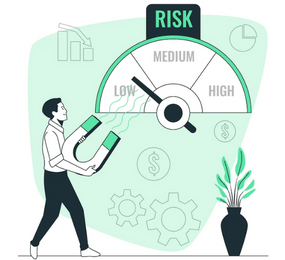Incidents and disruptions in the supply chain can have significant impacts on businesses, underscoring the need for effective incident management techniques, tactics, and procedures. The upcoming presentation at the Supply Chain Risk and Resilience Forum on 30th May - 1st June 2023 will delve into this crucial area, offering insights into best practices for managing and responding to supply chain incidents. In this article, we will explore key elements of incident management and how organisations can enhance their capabilities in this regard.
1. Incident Identification and Categorization: The first step in incident management is identifying and categorising the incident. Organisations should establish clear protocols and mechanisms to detect and report incidents promptly. This can be achieved through real-time monitoring, alerts, and incident reporting systems. Categorising incidents based on severity, impact, and urgency helps prioritise response efforts and allocate resources effectively.
2. Incident Response Team: Forming a dedicated incident response team is essential for managing incidents efficiently. This team should include representatives from relevant departments such as supply chain, operations, IT, communications, and risk management. Assigning clear roles and responsibilities within the team ensures a coordinated and timely response to incidents.
3. Incident Assessment and Analysis: Once an incident occurs, it is crucial to conduct a comprehensive assessment and analysis to understand its root causes, potential impacts, and implications for the supply chain. This involves gathering relevant data, conducting investigations, and engaging subject matter experts. The insights gained from the assessment inform decision-making and enable effective incident response strategies.
4. Incident Response Plan: Developing a well-defined incident response plan is critical for swift and effective action during incidents. This plan outlines step-by-step procedures to be followed, communication protocols, resource allocation strategies, and escalation pathways. It should be regularly reviewed, updated, and tested to ensure its effectiveness.
5. Communication and Stakeholder Management: Effective communication is paramount during incidents. Organisations should establish clear communication channels both internally and externally. This includes communicating with employees, suppliers, customers, and other stakeholders to provide timely updates, manage expectations, and mitigate potential negative impacts on the supply chain. Maintaining transparency and establishing a centralised communication hub enhances collaboration and coordination.
6. Incident Resolution and Recovery: Once the immediate response to the incident has been initiated, organisations should focus on resolving the issue and recovering normal operations. This may involve implementing alternative sourcing strategies, activating backup systems, engaging with suppliers and partners to restore services, and executing business continuity plans. Continuous monitoring and assessment are essential during this phase to ensure that the resolution efforts are effective.
7. Post-Incident Review and Lessons Learned: Conducting a post-incident review is crucial for continuous improvement. Organisations should analyse the incident response, identify areas for improvement, and capture lessons learned. These insights can be used to refine incident management procedures, update response plans, and enhance overall supply chain resilience.
In conclusion, incident management techniques, tactics, and procedures are vital for mitigating the impacts of supply chain incidents. The presentation at the Supply Chain Risk and Resilience Forum will shed light on best practices in this area, equipping attendees with valuable insights and strategies. By focusing on incident identification and categorization, establishing dedicated incident response teams, conducting thorough assessments, developing robust response plans, ensuring effective communication, and fostering a culture of continuous improvement, organisations can enhance their incident management capabilities and bolster the resilience of their supply chains.
To register or learn more about the Forum please check here: https://bit.ly/3DsfWE4
For more information and group participation, contact us: [email protected]
















